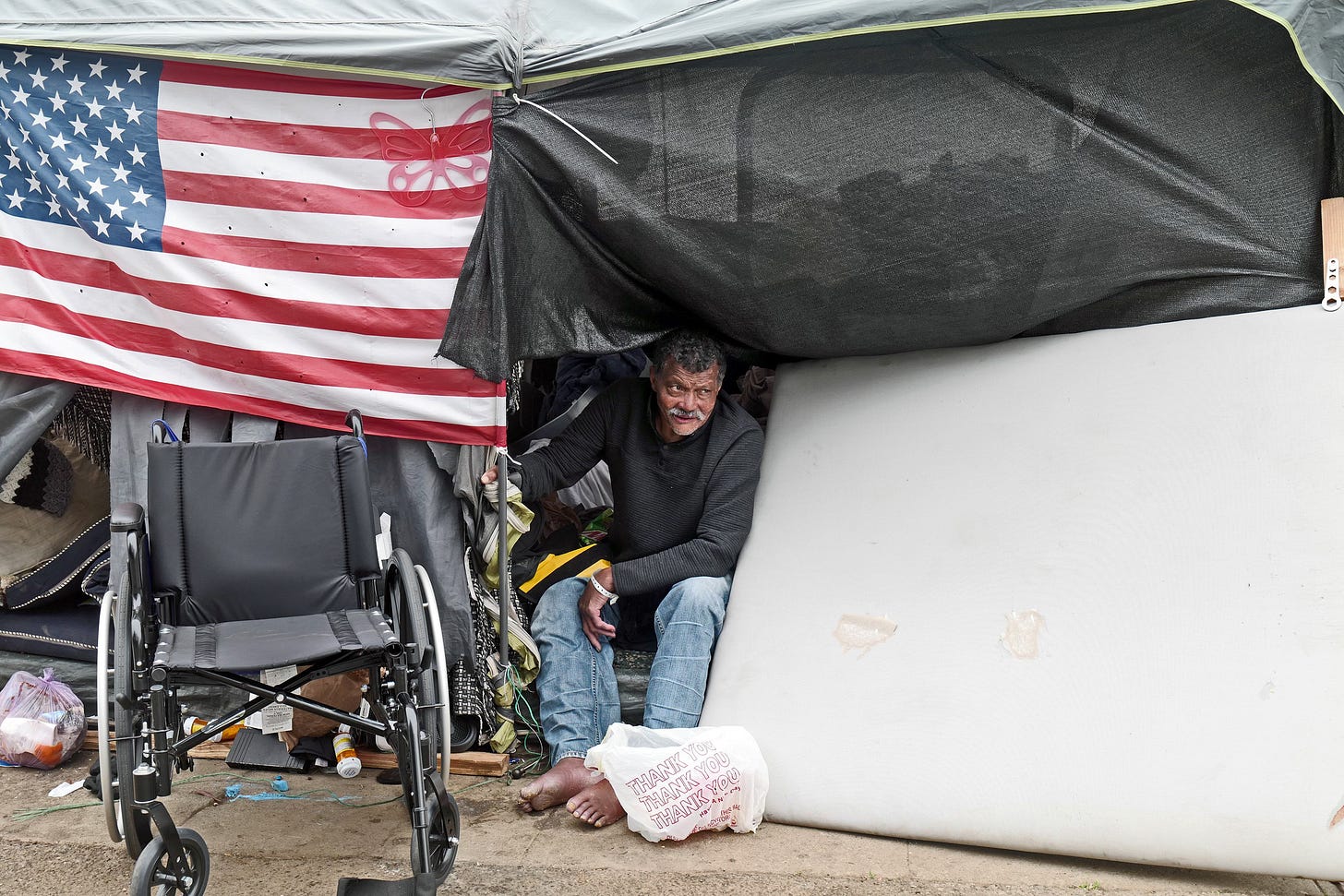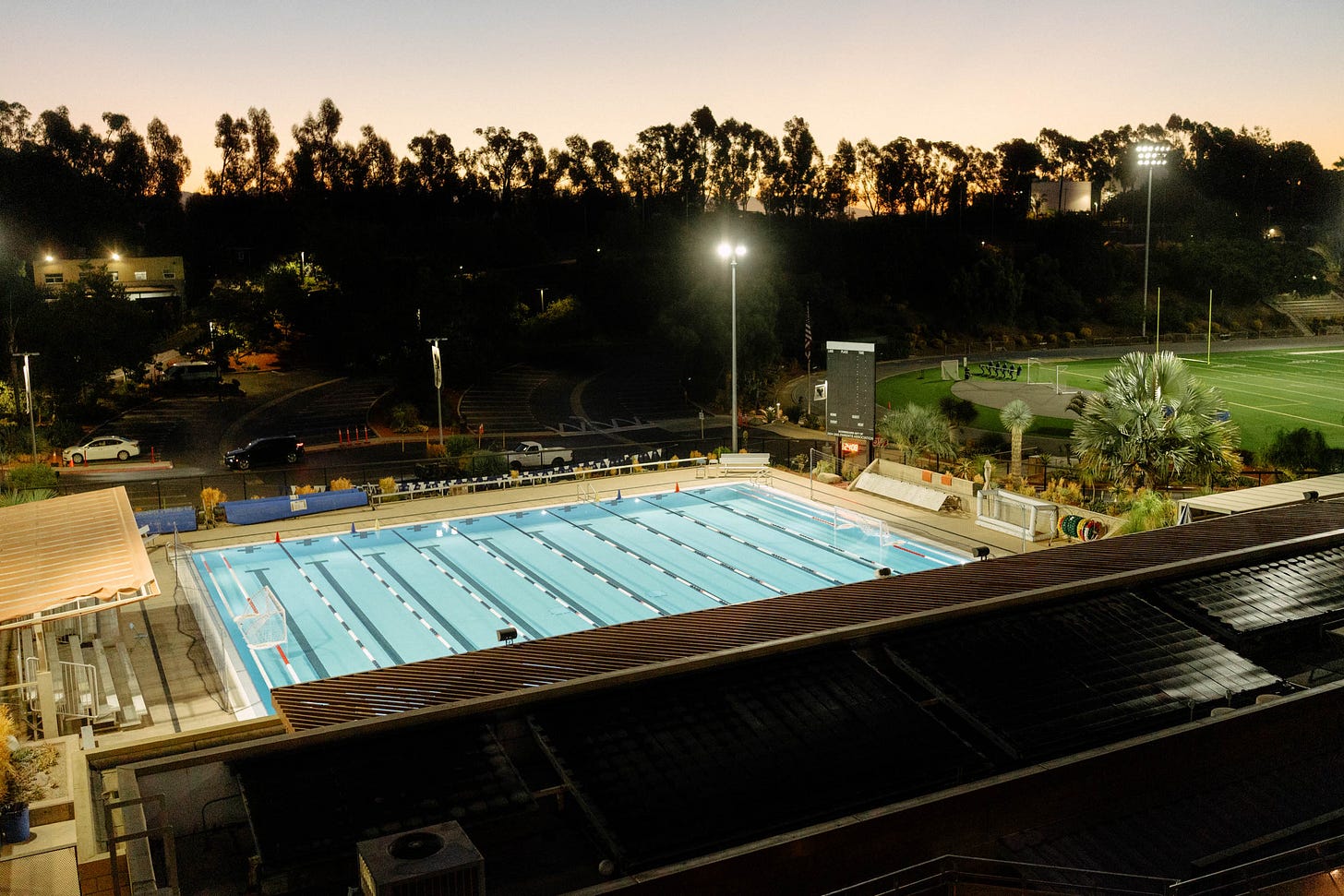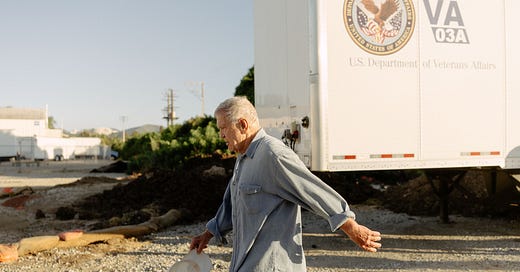VA appeals landmark ruling ordering it to build housing for homeless veterans
“Are you going to go back on your word or keep your word?” Judge Carter asked VA officials at the hearing. “I truly believe veterans are going to die.”

Late this week, the U.S. Department of Veterans Affairs filed notice of its long-threatened appeal to overturn a landmark court judgment for the agency to develop thousands of permanent and temporary homes for disabled and homeless veterans on its West Los Angeles campus.
The bombshell filing came after more than a month of court hearings and weekend and night negotiations to get temporary housing up on the 388-acre property adjacent to the exclusive Brentwood neighborhood and UCLA’s campus before LA’s rainy season.
At a hearing in U.S. District Judge David O. Carter’s courtroom Friday morning, VA lawyer Brad Rosenberg said the agency seeks to quash immediate plans to place 100 temporary modular homes on campus parking lots as well as development of up to 1,800 permanent homes down the line.
The appeal, if successful, would also blow up a $5 million settlement for veteran use of the exclusive Brentwood School’s athletic facilities, which had been sited on land leased from the VA. Carter, in his September judgment, voided all that and other outside leases that were not “veteran-centric.”
Long Lead has been reporting from Powers v. McDonough every day court has been in session, and we will continue to follow this issue in this newsletter. Subscribe here to get updates sent direct to your inbox as soon as they publish:
The agency also intends to negotiate a new lease for UCLA’s Jackie Robinson baseball stadium, Rosenberg told Carter in court Friday. Carter had killed the stadium lease as a part of his ruling and locked the university out of the facility in a subsequent, fiery marathon hearing.
Carter, his voice edged by anger, remained defiant, saying that unless and until a federal appeals court intervened the temporary housing preparations would go forward.
“Are you going to go back on your word or keep your word?” Carter asked VA officials assembled in court. “I truly believe veterans are going to die.”
Rosenberg called the characterization the agency broke a promise unfair. He said the government would file for an emergency stay on Carter’s orders by Wednesday, arguing the VA would experience “irreparable harm” if forced to divert money from other veteran needs for housing.
A life and death struggle on the streets of Los Angeles

Andre Butler was born on Independence Day, joined the Marines, and died as a disabled man living in a tent on the streets of Los Angeles. But this veteran’s death sentence came long before he set up camp outside a federal property that was founded to house service members like him.
Part One of Home of the Brave tells the story of how a military veteran, a hero with the full support of the U.S. government, became homeless. Butler’s personal struggle shows how the VA can gravely fail disabled vets, service members who need the agency’s care most. It’s an outrageous, enraging profile that we will caution in advance: Read it all the way to the end.
During a break in proceedings, plaintiff’s attorney Roman Silberfeld noted that the estimated $15 million for the modular housing project would hardly leave a dent in the VA’s annual budget of nearly $370 billion.
“If anyone in LA wonders why there are thousands of veterans in the streets, this is why,” said Rob Reynolds, a veteran and veterans’ advocate. “Anytime anyone tries to do something, the VA blocks it in some way.”
“It’s a travesty for all veterans across the nation, right before Veterans Day and also the winter storms,” said Robert Canas, an Air Force veteran of the Iraq war who attends Carter’s hearings. “A grateful nation thanks you with a VA that hates you.”
In a statement from the VA, spokesperson Damian McGee noted the department has permanently housed more homeless veterans in LA than anywhere else in America in each of the past three years (including 1,854 Veterans during 2024). "The court exceeded its legal authority, and its orders would prevent VA from fulfilling our mission to end Veteran homelessness by diverting critical resources from efforts that are proven to get Veterans off the streets and save lives — including VA health care, permanent housing support, legal assistance, job training, and much more,” the statement said. “This would negatively impact Veterans and their families, both in LA and across America, and VA is beginning the appeal process to prevent that from happening."

Brentwood School lawyer Jonathan Sandler said his client planned to stick to its settlement terms, including ceding more than 50 percent use of its 10-lane pool, track and weight room to veterans, while the legal battles continue. Rosenberg, however, said the VA intends to block all land use as well as housing claims, and to establish its authority to renegotiate all campus leases.
The parking lot for the UCLA stadium was one of three parcels where Carter and parties including the VA had planned modular housing. Only last week, VA officials had said they would pay for the units, although Rosenberg also told the court the agency reserved the right to appeal.
Civic leader and developer Steve Soboroff, who has been helping Carter and plaintiffs site veteran housing, turned from the courtroom podium to apologize to veterans in the audience.
“I am so sorry for every veteran and you guys representing 16 million veterans in America,” he said.
“If anyone in LA wonders why there are thousands of veterans in the streets, this is why. Anytime anyone tries to do something, the VA blocks it in some way.” —Rob Reynolds, veteran and veterans’ advocate
After discussion of the appeal, Carter continued directing the logistics of procuring and installing the modular housing. Experts plan a site visit Monday with engineers.
Cavco Homes of Arizona can provide all 100 units, plaintiffs experts told Carter, but Chelsea Black, the VA’s acting facilities planning chief, said the agency continues its own search for manufacturers.
Black, as she did last week, raised a half-dozen roadblocks to executing a contract. “You don’t have to repeat that like a broken record,” Carter said. Cavco would need an “iron-clad” guarantee the appeal would not hold up or stop payment, to go forward with the deal, Randy Johnson, another expert witness, told Carter.
Carter asked plaintiffs whether they would favor razing UCLA’s stadium, which the VA estimated would cost $7 million, and mused whether the university’s earlier offer to double its annual rent to $600,000 could be revived for a year if the litigation stretches longer.

The judge also questioned who at the VA had renegotiated UCLA’s stadium contract in 2016 with a 10-year, 1 percent inflation cap. The actual rate of inflation stands at 20 percent he said.
Plaintiffs’ attorney Mark Rosenbaum of Public Counsel said even the higher rent would be a “gross underestimate” of the stadium land’s value.
“UCLA pays its baseball coach $1 million,” Rosenbaum said. “You can get lost on their website how much they extol that program.”
Carter also raised the possibility of veteran student housing and of UCLA’s social work school helping the VA with veteran outreach.
Rosenbaum predicted the VA would lose its appeal. “Every party in this case should be focused on getting veterans off the streets and into housing,” he said.
The next hearing is scheduled for Monday, Oct. 28 at 3:30pm.
Support impactful journalism. Vote for “Home of the Brave” today.
Reported for more than three years, “Home of the Brave” has documented disabled vets' decades-long fight for housing at the West LA VA. Our journalism has brought a national spotlight to this struggle, attracting readers like you. The feature is now a finalist in the Anthem Awards, which celebrate work that sparks meaningful change — and we need your help. Please click the following links and select Long Lead’s “Home of the Brave” for:
• Best Humanitarian Action & Services Awareness (News & Journalism)
• Best Human & Civil Rights Awareness (Special Projects and News & Journalism)







